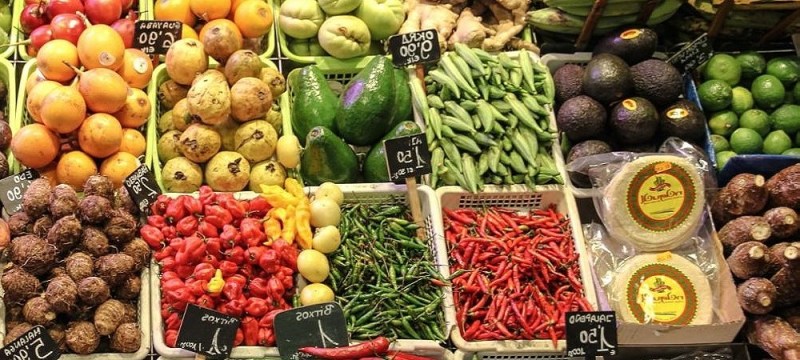Organic is a term that describes how sources of food are grown and processed in terms of its agricultural lifespan. The word applies to a multitude of products, including fruits, vegetables, dairy and meat. Organically grown and processed foods are when the farmer in charge of production rejects common methods and chemicals used for fertilization and disease prevention.
What Are The Standards For Organic Food?

For something to be considered organic, it must meet certain requirements from the United States Department of Agriculture, such as using land that has been chemical-free for three years before production, no use of hormones or antibiotics on livestock for any reason, and no genetic engineering, sewage sludge or ionization through radiation. The rules are well-enforced and a government-approved certifier visits all farms claiming to produce organic products to ensure that they have met every standard set by the USDA for their products to be labeled “organic” in stores.
What Organic Practices Are Used With Produce?

When it comes to growing organic produce, farmers will keep their soil healthy by using manure and other biological fertilizers, allowing the soil to retain water while still ensuring any water that does escape won’t pollute other natural water sources. They also use proper crop rotation to keep the soil fresh, full of nutrients and to help prevent weeds. To deter pests from preying on their crops without using chemical repellents, farmers release beneficial insects to attack other bugs.
What Organic Practices Are Used With Livestock?
For livestock to be considered organic, the animals must have access to the outdoors with plenty of space to exercise and roam freely. They also must be fed entirely organic food themselves, and may not be given any growth hormones or antibiotics in their food. Livestock are permitted certain vaccines and pain medication to ensure that preventative measures are in place and comfort can be provided if they do not work. Access to sunlight, clean water and fresh air is also a necessity for livestock to be considered organic.
Why Did Organic Eating Start?

Organic practices of production originated due to the negative impacts of conventional farming methods on the earth’s ecosystems, social structures and the food industry as a whole. These negative effects include unhealthy population shifts, disintegrating food security and disruptions to the environment due to the chemicals used to manage the growth and maintenance of crops and livestock. These industrial methods of farming can also cause pollution in the air and water, spread waste throughout the surrounding ecosystems and enforce harmful behaviors towards livestock. While some of the impacts may be long-term or irreversible, organic farming helps prevent further damage to the earth, provides healthier alternatives for human beings and creates a more caring and morally righteous environment for animals
What Is The Impact Organic Production Has On The Planet?
One environmental benefit of these practices is it eliminates contaminants from spoiling soil, water, local wildlife and surrounding plants and grasses. It’s also been suggested that organic farming is capable of reversing the effects of climate change, as it’s possible to use carbon to our benefit during farming while substantially reducing the amount of greenhouse gases released into the atmosphere.
Why Should You Eat Organic?
Eating organically might be a bit pricey, but the health benefits and ethics make it a worthwhile pursuit. Organic produce tends to have higher antioxidant activity along with increased levels of natural nutrients, while not having any of the chemicals found in pesticides, fertilizers and growth hormones. In addition to this, organic products have been found to be potentially healthier for the human heart and immune system, as well as preventing antibiotic resistance from developing as a result of the antibiotics used on livestock by conventional farmers.
